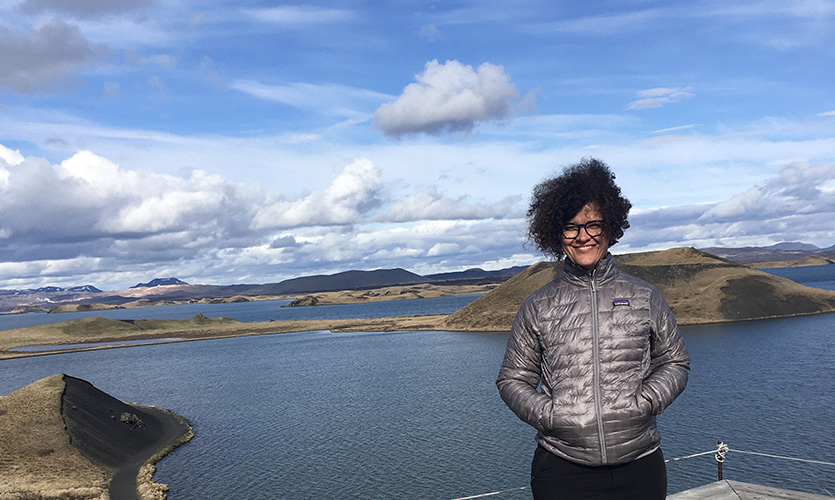Dr Sasha Kosanic

Sasha is an interdisciplinary scientist whose research focuses on answering complex questions about climate change and the impact it is having on nature and societies. She is also an advocate for inclusion in education, as a former Paralympian and a scientist living with Cerebral Palsy, she looks to highlight inequalities wherever she finds them and to drive forwards change in research and academia.
She has been a Lecturer at LJMU since June 2020, teaching on our ground-breaking climate change, ecology, and sustainability programme within our School of Biological and Environmental Sciences.
Sasha is an inspirational role model for our students, herself dedicating many years of study and research in the field of geography, gaining a BSc in Geography from the University of Zagreb, Croatia, in 1999, and later, in 2007, earning her MSc in Physical Geography from the University of Ljubjana, Slovenia. “Geography has always been my passion.”
Spending many of her formative years growing up in Croatia and Slovenia, her childhood was one influenced by the nature around her, and which grew her passion for not just geography but also for sport.
“I was very lucky to be surrounded with nature and the Julian Alps - a mountain range of the Southern Limestone Alps that stretch from northeastern Italy to Slovenia - while growing up. This pushed me into sport, particularly into Alpine skiing.”
While pursuing her studies in geography, Sasha was also excelling in Alpine skiing, competing from 2000 to 2006, even representing the Croatian Paralympic team for the Winter Paralympic Games in Salt Lake City in 2002.
“I knew I could achieve all of my dreams if I worked really hard, even through a very bumpy road.”
– Dr Sasha Kosanic

Transitioning from sport to full-time academia, Sasha next pursued a PhD in Geography at the University of Exeter here in the UK, focusing on the connection between anthropogenic climate change, biodiversity, and its implications for West Cornwall.
Before joining LJMU, she spent time working as a postdoctoral researcher at the University of Konstanz in Germany, contributing significantly to projects exploring climate change implications on plant species, landscapes and the correlation between cultural ecosystem services and human wellbeing.
In her current research endeavours, Sasha delves into the intricate dynamics of climate change, ecosystem services, and their ramifications on marginalised communities such as people with disabilities and Indigenous populations. Through her work she is influencing change at a global level and contributing to the university’s commitment to the United Nations 17 Sustainable Development Goals (SDGs) working towards a more sustainable, prosperous future for local communities and the whole planet.
Passionate about inclusive education, Sasha advocates for the integration of disabled students and researchers into STEM fields.
“Only such inclusion can erase current misconceptions and change demographics in academia.”
Acknowledging the daily obstacles she faces as a disabled scientist, Sasha says: “Day-to-day work with Cerebral Palsy is challenging as I live in a world that is not designed for people with disabilities. I need to catch up on a daily basis with my colleagues who are much quicker. In the same way as my non-disabled colleagues, I need to teach, meet students, do admin, and do research activities and be part of the next Research Excellence Framework submission. This requires exceptional organisation skills that are sometimes not fully visible and recognised.”
But Sasha praises LJMU for its open and inclusive environment, a place where she can continue to shape and influence climate change related research and inspire the next generation of scientists, no matter who they are, acting as a role model for inclusion.
And while Sasha says that she doesn’t really have any standout role models of her own throughout her career to date, she did have amazing parents who always provided her with validation to aspire to great things.
“With this strong emotional background, I knew I could achieve all of my dreams if I worked really hard, even through a very bumpy road.
“My biggest achievements in life are still competing in the Paralympic Games and from a scientific point of view many international collaborations with wonderful colleagues who are transforming academia into a caring, inclusive, and more sustainable environment.”
